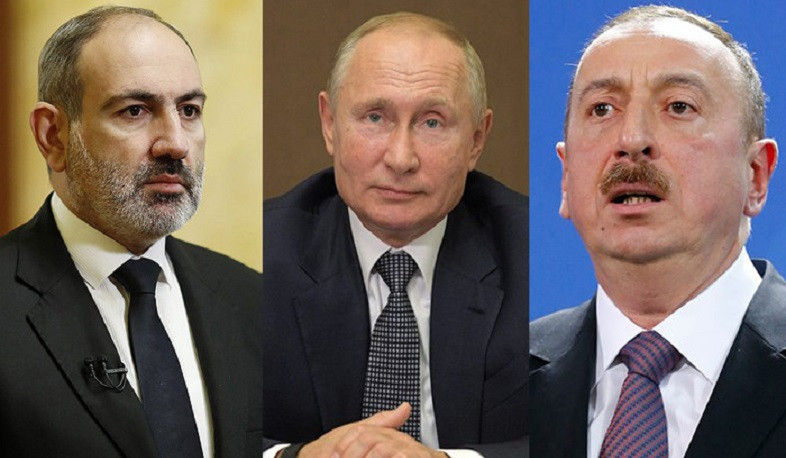In a bold escalation after its long standoff with Moscow, Azerbaijani President Ilham Aliyev announced over the weekend that his government will pursue international legal action against Russia over the downing of a passenger jet near Aktau earlier this year, signaling a big shift in the South Caucasus geopolitics.
Speaking to local media, Aliyev said Azerbaijan would file lawsuits in international courts demanding that Russia accept responsibility for the February 2025 crash of Azerbaijan Airlines Flight 8243, which killed all 38 passengers and crew. Investigators have alleged that a Russian Pantsir-S air defense system mistakenly shot down the aircraft near the Caspian Sea city of Aktau, Kazakhstan.
“We are ready to wait ten years, but justice must win,” Aliyev stated, calling on Moscow to admit fault, prosecute those responsible, compensate victims’ families, and reimburse Azerbaijan for the destroyed aircraft.”
Although the Kremlin offered condolences shortly after the incident, it has yet to formally acknowledge culpability. Russian President Vladimir Putin has remained silent on the matter in recent months, while the Russian Ministry of Defense has consistently denied any involvement, attributing the crash to “unknown technical failures.”
Russian media and officials have suggested that third‑party actors—particularly Ukraine—are stoking tension, warning that Baku’s alignment with Kyiv risks destabilizing the region. Russia has indicated that Kyiv aims to “add fuel to the fire.”
The crash though has deeply strained relations between Baku and Moscow, historically linked through both post-Soviet regional structures and energy interests. Azerbaijan recently skipped Russia’s 2025 Victory Day military parade, and high-level diplomatic contact has sharply declined.
Analysts view Azerbaijan’s demand for accountability as an assertion of independence and sovereignty from Russian influence. Aliyev’s recent remarks mark some of the strongest anti-Russian commentary by an Azerbaijani leader since independence. Speculation is also rife that Baku is now looking to heavily lean towards the West in an anti Russia lobby, could it also be looking to join NATO in some capacity much like it’s close ally Turkey.
Strained ties between Russia and Azerbaijan
While Azerbaijan maintains its formal policy of “non‑alignment,” recent moves suggest a pivot toward Western institutions. Participation in NATO’s Individually Tailored Partnership Programme (ITPP) has deepened, coupled with a notable increase in joint military exercises in 2024 and early 2025.
Yet Baku continues to reject overt NATO membership—for now. Government statements affirm a flexible multi-vector foreign policy with no predetermined alliance pathway.
Recent reports suggesting Moscow has quietly reinforced its 102nd military base in Gyumri, potentially expanding its footprint to exert greater influence in the region, has also not gone down well with Azerbaijan. Russia has a long and histroical relationship with Armenia, the arch rival of Azerbaijan, straining ties. While Armenia has denied the claims of Russian deployment, Ukrainian military intelligence released an alleged order detailing troop “replenishment” at the base.
Baku views any Russian military expansion in Armenia—especially near the Azerbaijani and Turkish border—as a strategic provocation, potentially signaling Russian alignment toward Yerevan over Baku.
While Russia aims to maintain its foothold, both South Caucasus states are asserting strategic autonomy. Azerbaijan frames renewed Russian military presence as undermining sovereignty, while Yerevan is cautiously avoiding direct entanglement with Moscow’s military structures.
Azerbaijan provokes Russia
Azerbaijan’s lawsuit against Russia and Armenia’s shift toward Europe reflect broader transformations across the region.
Once guarantors of stability, Russia’s limited involvement in the region—highlighted by its inaction during the 2023 Nagorno-Karabakh conflict—has disillusioned long-standing allies. Both Armenia and Azerbaijan are realigning: Armenia is looking towards the EU and NATO, and Azerbaijan towards Turkey and Western NATO partnerships. The major reason for Russian inactivity in theregion has been due to its preoccupation with the Russia Ukraine war, where all its resources and policies are being streamlined to counter the West and Ukraine and push forward in the war. This has created a vacuum in its previous areas of influence which NATO has been looking to fill.
Azerbaijan’s moves towards West is likely to be regarded as a direct threat to Moscow, potentially responding with military pressure, economic sanctions, and strengthened ties with Armenia or hardline regional forces.
Azerbaijan’s legal push against Russia, combined with Russian military movement in Armenia, underscores an accelerating geopolitical realignment. While there remains no formal application to NATO, the region is clearly moving away from Moscow’s orbit.
With relations between Armenia and Azerbaijan progressing independently of Russian mediation, Moscow risks being sidelined entirely. The Aktau crash may become a turning point,bone that can lead the region into far greater turmoil than can be imagined.








